Benefits of EV Fleet Management Software for Businesses?
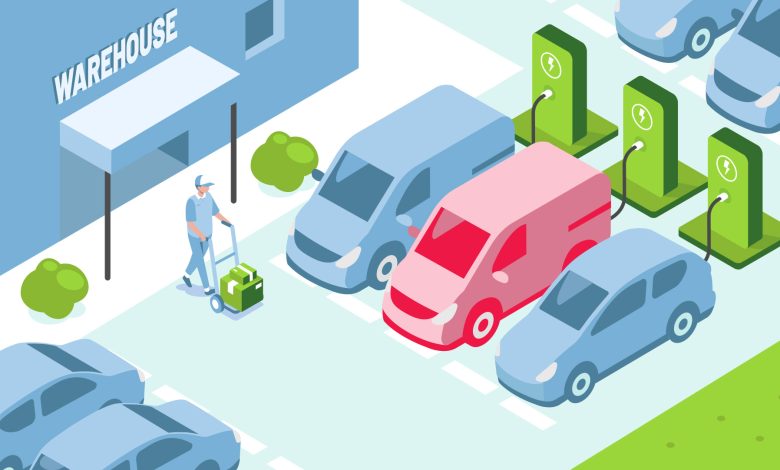
For fleet management organizations wishing to properly operate their electric vehicles while adhering to strict governmental restrictions, EV Fleet Management software is a great resource. As you are aware, over the past ten years, the market share of electric fleet vehicles has dramatically increased globally. It is still growing all across the world due to its great availability and affordability. This pattern is likely to continue.
To cut carbon emissions, governments all across the world are promoting the changeover to contemporary electric vehicles. By 2030, there will be 115 million electric vehicles on the road worldwide. Electric vehicles have the full endorsement of the EU and China.
In reality, Joe Biden wants to spend $15 billion by 2030 to build 500000 EV charging stations. It suggests that in the years to come, the management of the entire EV fleet will change as a result of the electric vehicles’ increasing popularity. Let’s quickly review what fleet management is and the advantages that EV fleet management software offers to business owners.
EV Fleet Management: What is it?
EV stands for an electric vehicle, which may operate entirely or in part on electricity. An EV Fleet is a collection of electric vehicles that a business purchases or leases. The cars are good for the environment because they release no carbon dioxide. The electric vehicle (EV) powered by batteries that must charged at EV charging stations.
To ensure that fleet operations run smoothly, an EV fleet management system therefore required. The management of the fleet’s maintenance and charging requirements referred to as fleet supervision.
In order to calculate the number of EV charging stations needed along the length, EV fleet management analyzes the volume of vehicles and the distance they travel. Therefore, in order to give fleet operators a unified, insight-driven perspective, EV fleet management must handle significant challenges like range anxiety. This aids in improving the efficiency of the EV fleet.
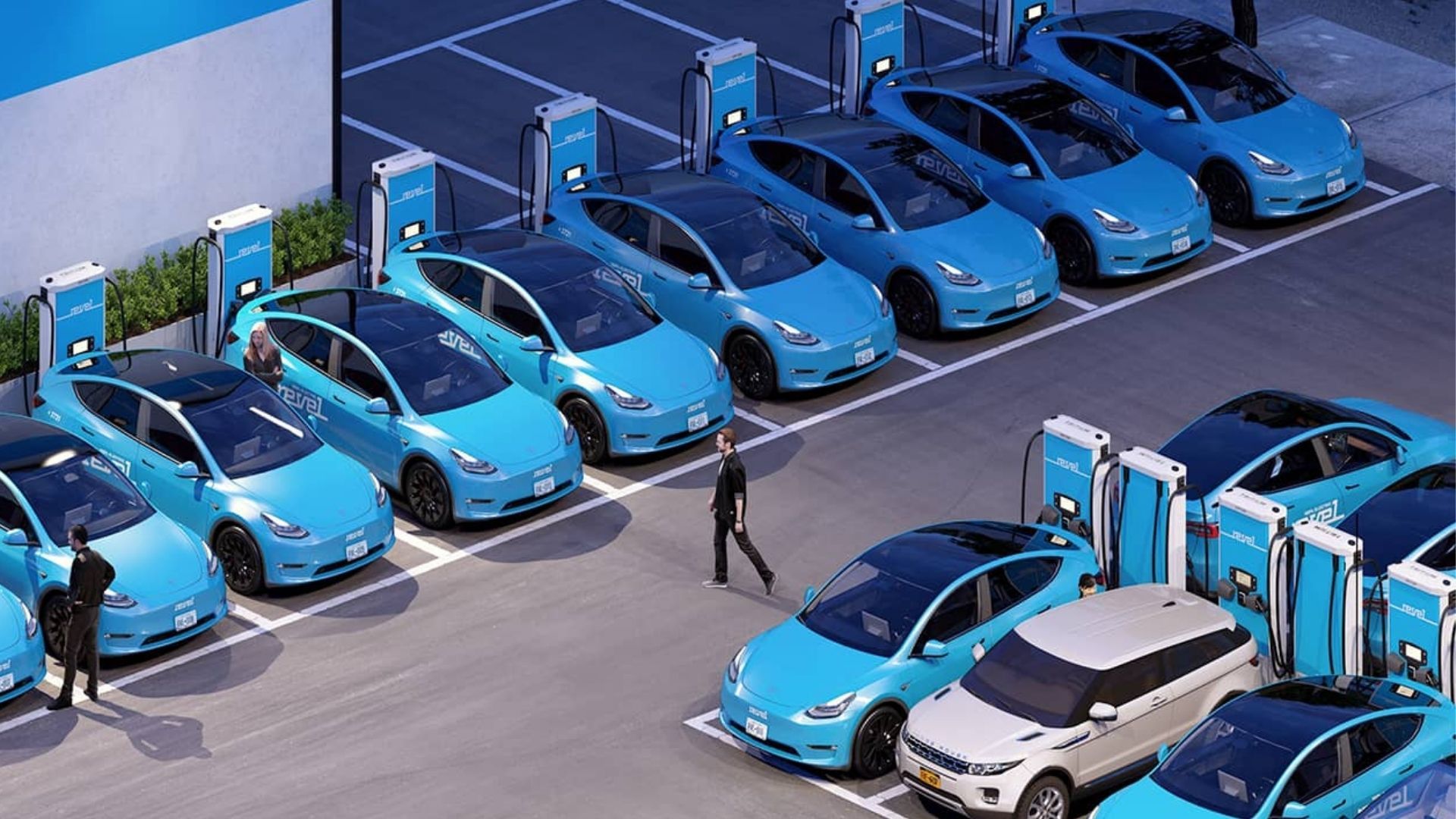
What benefits do businesses and the general public get from electric vehicles?
It is realistic to expect that one of the most significant changes of this decade will be the widespread adoption of electric vehicles (EVs) by people around the world. Due to its low cost, (much increased) supply-side advantages, and overall relief it brings the environment, people are quickly choosing this alternative. Governments and automakers alike are putting a lot of effort into growing the market share of electric vehicles in order to encourage more consumers to switch from internal combustion engine cars to EVs.
In an effort to lower the entry barrier for EV ownership, governments all over the world are increasing spending on various aspects of the electric vehicle ecosystem. A significant obstacle to EV adoption charging, which addressed by spending billions to build EV production facilities, provide tax breaks to both sellers and buyers, and set up charging stations.
Changes are occurring
Similar changes are occurring in the fleet management and logistics industries as their respective customer bases adopt electric vehicles. A fleet of electric vehicles also has a number of benefits. Gasoline, which is a major fleet management expense, can saved in this method. Even though this is already a successful concept, adding additional benefits like less maintenance costs, improved lifetime value, etc. makes it even better.
If they wish to maintain an all-electric or almost all-electric fleet while taking use of this new technology, transportation and logistics companies will need to reevaluate their EV fleet management software. There is no exception to the need to abide by all rules and regulations.
EV Fleet Management Software’s Advantages
The decrease of carbon emissions, which is essential in the fight against climate change, is one of the main benefits of running an EV fleet. Although the number of EVs on the road is currently far below what it could be, producers, regulators, and legislators are working hard to encourage the usage of EVs and, by extension, their benefits.
Instantaneous Pricing Policy Data
The real-time charging insights offered by EV fleet management software are one of its main advantages. For fleet managers who need to know how far their vehicles may travel, this information is essential. The first stage in managing an EV fleet is allocating and dispatching vehicles on regular delivery routes.
Integrating seamlessly with cloud-based platforms
The principal advantage of EV fleet management software is how quickly and readily it can integrated with current cloud-based solutions. Both can effortlessly combined because EVs come with cloud-based solutions. As a result, real-time monitoring, communication, and data exchange are all made simpler.
Integrating seamlessly with cloud-based platforms
The principal advantage of EV fleet management software is how quickly and readily it can integrated with current cloud-based solutions. Both can effortlessly combined because EVs come with cloud-based solutions. As a result, real-time monitoring, communication, and data exchange are all made simpler.
Maintains a positive outlook
Continuing from the last point, the ease with which data can shared and reports can made utilizing this data allows EV fleet managers to more easily fulfill all the regulatory compliance obligations that EVs need to conform to (for example, hours logged, the number of times battery packs have charged, etc.).
Dispenses with the Need for Fuel
Fuel by far the most expensive of all the costs associated with keeping a fleet mobile. Therefore, transitioning to EVs significantly reduces these operational costs, which is advantageous for the bottom line.
How might electric cars benefit businesses and consumers?
The quick uptake of electric vehicles (EVs) by people all over the world is probably going to be one of the most significant changes of this decade. Consumers are quickly using this choice because to its affordability and the (rapidly) improving supply-side improvements, as well as the much-needed reprieve it provides for our environment. Manufacturers and governments alike are continually working to further this innovation as the number of EVs sold rises quickly and more people switch from traditional combustion-engine vehicles to EVs.
Governments all over the world are increasing investment into various EV eco-system components to do their bit in making it simpler for EV owners to buy, use, and maintain an EV. A number of billions of dollars invested in EV manufacturing facilities, tax breaks for both buyers and sellers, and the installation of charging stations to address the problem of EV charging, which is a major barrier to EV adoption.
Comparable changes
The transportation and fleet management sector is seeing comparable changes as consumers who buy EVs. Additionally, an EV fleet offers a lot of advantages. For instance, fuel consumption, the single largest cost associated with maintaining a fleet, is removed. You may make it even better by adding many extra advantages like decreased maintenance expenses, increased lifespan value, etc.
Naturally, the fleet management system utilized by logistics and transportation companies must also reinvent itself in order to keep up with maintaining a mostly, if not entirely, EV fleet while also utilizing all the advantages that an EV fleet offers. Of course, all laws and regulations must be followed to the letter.
What exactly is EV Fleet Management, though?
When a business rents or purchases a large number of electric vehicles for the operation of its logistics or transportation business, it considered to be operating a “EV Fleet.” Of course, “EV” stands for “Electric Vehicle,” a vehicle that powered entirely or in part by electricity.
Since they don’t generate any carbon dioxide and are therefore incredibly environmentally beneficial, these cars frequently referred to as “green automobiles.” A “charging station,” which is simply a physical facility with many chargers ready to hook into your EV and restore its charge, is where you can recharge the batteries that power EVs.
This not only improves the efficiency of the EV fleet but also offers a comprehensive management viewpoint.

There must be difficulties, right?
EVs have many advantages, but they also present some special difficulties, particularly given the novel operating dynamics they offer. Several are:
- Encouraging drivers to be accountable for charging
- Vehicle deployment without knowledge of SOC (state-of-charge)
- Recharging autos at public charging stations for longer than necessary EVs and their use in fleets
Electric vehicles already quickly added to fleets of passenger and small commercial vehicles. It makes sense for companies that transport people and light freight in cities, as we will see later in the advantages. The overall distances not great, and they can completed with little or little recharging.
Businesses that adopted e-mobility early included intercity delivery services, taxis, and bus companies. Many more, including certain police departments, soon followed.
Electric vehicles
Several businesses, including Uber, Walmart, Amazon, Frito Lay – PepsiCo, and FedEx, have declared their intention to switch entirely to electric vehicles by the year 2040 or before.
There are numerous carbon-free projects. One of them is The Climate Group’s global campaign EV100. EV100 brings together businesses committed to converting their owned and contracted fleets to electric vehicles by 2030 and putting in charge stations for both staff and clients.
Companies including Baidu, Coca-Cola, Danfoss, Deutsche Post DHL Group, GlaxoSmithKline, Heathrow Airport, HP, IKEA Group, METRO AG, Novartis PG&E, Siemens, and Tesco are just a handful of the 121 current members.
A good Electric Vehicle (EV) fleet management solution must used in conjunction with any business’s EV fleet for it to be a wise long-term investment.
The expenditure on an electric vehicle fleet and recharge stations
When it comes to upfront expenditures, switching a company’s fleet from internal combustion engines (ICE) to electric cars can appear to be a daunting investment. Evs are expensive to purchase, they need to invest in new EV charging infrastructure, and they need to adopt a new fleet management strategy.
The total cost of ownership (TCO), which can much lower than it seems, must considered in order to properly comprehend the picture.
The full ownership cost (TCO)
The purchase price and every other aspect of an EV’s life taken into account when calculating the total cost of ownership. This covers upkeep, depreciation of assets, bonuses from taxes and insurance, received incentives, and clean air zone costs. When considering the TCO as a whole, EVs overtake their ICE counterparts in terms of appeal.
Pros
For EV fleets that operate on a big scale, the key benefits reduced fuel costs, maintenance requirements, and reliability. It has stated numerous times before: with the right EV fleet charging management software, operating an EV fleet is less expensive than operating an ICE fleet.
Additionally, because electric cars have fewer moving components, they require less maintenance and oil or part replacement. Additionally, they require less downtime and less maintenance, making them less expensive to run and maintain.
Governments throughout the world are beginning to punish the use of ICE vehicles while also providing grants and tax incentives for EVs in accordance with the new orientation to promote a switch to e-mobility.
Cons
The most obvious disadvantages are the cost of purchase and battery life, which can both be overcome by investing in infrastructure and reevaluating fleet management as a whole.
Time is the solution to both of these problems. The cost of electric vehicles and batteries will gradually drop as more EVs are developed and are adopted more widely. Recent sales data for electric vehicles support that.
As a result, many analysts predict that between 2025 and 2027, the selling prices of ICE and EVs will equalize.
The management of EV fleets: CAPEX vs. OPEX
The CapEX vs. OPEX method to managing an EV fleet is important to discuss when considering a conversion to an EV fleet. Simply said, the corporation invests its capital in buying and maintaining the fleet when using the CapEX (capital expenditure) approach.
By contrast, the fleet would be “leased” from a service provider for an all-inclusive monthly price under the OPEX (operational expenditure) method.
It is realistic to anticipate that most businesses will lease electric vehicles while expanding their EV fleet because, generally speaking, from a tax perspective, businesses favor OPEX expenses.
Planning for EV Fleet Charging
The distinction between EV fleet management and conventional “ICE” fleet management is made by EV fleet charging. Where, when, and for how long should electric fleet vehicles be charged?
A corporation must have a strategy for charging electric vehicles before adding any to its fleet. An EV fleet charging project must take into account how the EV fleet will develop and expand. So how many will they require, where should they be located, how quickly, etc.
No amount of skilled EV fleet management will assist if the infrastructure for recharging the fleet of EVs is not well thought out.
Regarding EV fleet charging, it’s also important to highlight Vehicle to Grid, or V2G, technology. If V2G technology is adopted widely, EV fleets may also generate income by storing inexpensive energy and selling the additional power back to the grid at a profit.
Charging as a Service for EV Fleets
Infrastructure and EV chargers can potentially be “leased,” similar to fleet automobiles. The service is an excellent method to avoid the hassle and costs of setting up an EV fleet charging infrastructure.
Read our blog post on EV Charging as a Service for more details. Let’s just say that, like leasing an EV, it’s a turnkey solution for a monthly fee and that it counts as an OPEX spend.
How does managing an EV fleet work?
Since there are many gas stations, a standard fleet management solution focuses less on refueling and more on workload and route optimization.
Recharging is essential for task distribution and routing with an EV fleet. Electric Vehicle fleet management must focus on continuously gathering and evaluating battery data, charge state, and charging options of all EVs in the fleet for the fleet to operate as intended.
Modern EV fleet management software will therefore remotely monitor the status of important vehicle metrics and present it to the online control panel in real time.
Core monitoring metrics for managing EV fleets
Range and battery charge status of the vehicle
To schedule where and when to charge their EV fleets, fleet owners must be aware of the battery levels in real-time. Battery status analytics and charge history are logged and accessible at any time for better planning in the future.
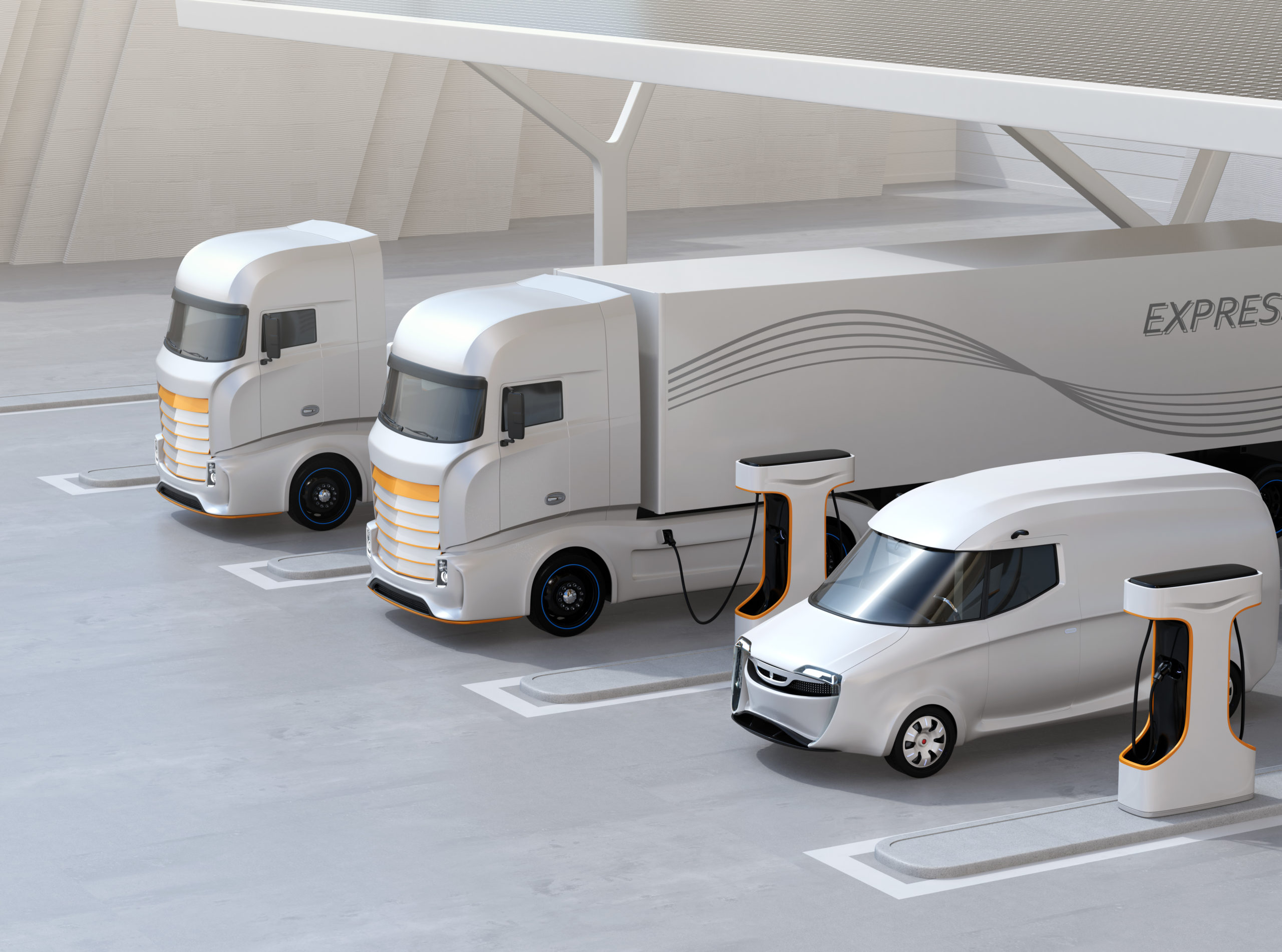
Checking the charging process
The analytics also provide information about charging process data, which keeps track of any mistakes or abuse that can harm or impair battery health.
Actual and predicted range (milage)
The anticipated range is continuously watched and serves as the foundation for route planning. The energy usage per kilometer and the estimated range in real time are displayed by the EV fleet management software.
Additionally, analytics aids planners in comprehending how outside variables affect the range. Data on how much load, cold weather, traffic congestion, or altitude can affect the driving range are some examples of these external elements.
The planners can use all this information to determine the real range in various scenarios and modify the planned route and charge.
Infrastructure for charging is accessible
The planners need immediate information on the availability of charging infrastructure in order to plan the routes.
Businesses frequently blend light-duty, medium-duty, and heavy-duty EVs in their fleets. They need various charging locations and intervals. So, in order to guarantee that all vehicles are fully charged, an EV fleet operator has to have information about the infrastructure for charging.
Companies can discover possible infrastructure gaps on crucial routes and invest in adding more charging outlets where they are needed by using data analysis of charging infrastructure demand.
Real-time information on availability can be vital for carrying out the task successfully in the event of unanticipated charging stops.
Observe your driving technique and energy recovery
Monitoring an EV’s driving technique and the amount of energy recovery it receives while moving is another issue that has an impact on planning. Use case data analysis can greatly assist future planning and decision-making.
Battery health and maintenance
Planning for future vehicle maintenance is made simple by monitoring important EV metrics. That is particularly crucial for the longevity of batteries, which deteriorate and wear out over time. A business can effectively schedule battery replacement in advance and prevent any issues on planned routes caused by battery capacity decline with the use of battery health monitoring.
Benefits of managing an electric vehicle (EV) fleet:
- Lower the overall cost of ownership (TCO)
- Less upkeep, increased dependability, and stability
- Smooth car functioning
- Boost energy management
- Software for Tridens EV Charge fleetWhen switching to EV fleets, fleet managers and Charge point operators (CPOs) have the best tools available thanks to contemporary cloud-based EV fleet management software like Tridens EV Charge.
You may monitor, manage, and troubleshoot your devices, read reports and real-time analytics, or use smart EV charging management software. EV Charge can easily integrate with your current fleet management software and manage your infrastructure and fleet.
EVs will fundamentally alter fleet management, and gathering and interpreting the data produced by infrastructure and vehicles will be crucial for business.
What is the operation of the EV fleet management system?
Due to the abundance of gasoline stations, traditional fleet management does not prioritize refilling. But this is the antithesis of EV fleet management. In order for a fleet to operate efficiently, EV fleet management is focused on continuously gathering and analyzing battery information, charge condition, and charging options of all EVs in the fleet. Recharging is essential for job scheduling and routing in an EV fleet.
As a result, EV fleet management solutions are built on existing charging infrastructure and perform all the functions of traditional fleet management software. Critical car attributes are remotely monitored, and the web platform receives these updates in real time so users may find the closest charging station.
Why is EV fleet management becoming more and more popular in the logistics and transportation sector?
There is no denying the EV’s rising popularity. What, then, is driving this expansion? The benefits of driving electric vehicles are prominently displayed. Government policy is yet another powerful motivation.
Range anxiety, which has long been cited as the top deterrent to EV purchases, is less of a threat as more charging stations are constructed. The stories of servicing automobiles that ultimately cost far less than those powered by gas are also being closely followed by prospective buyers.
The fleet manager who wants the most cutting-edge technologies is a new driver of EV fleet purchases. EV fleets commonly have windows, turbocharged EV engines, sodium-ion batteries, wire-free charging, taillights, headlights, and other features.
Principal benefits of fleet management solutions for electric vehicles
More companies are becoming aware of the many advantages electric vehicles have for delivery and transit as their use grows. This is why you ought to think about switching to an all-EV fleet:
Electric vehicles use substantially less energy and have reduced fuel costs. Due to decreased energy usage per mile, EVs are much more cost-effective than traditional petrol or diesel-powered automobiles. Due to their much simpler mechanical systems that require little routine maintenance, such as not calling for expensive oil changes, EVs also offer much lower maintenance and operating costs.
Earth-Friendly: Since EVs use renewable energy, they are also good for the environment. EVs have zero tailpipe emissions, lower atmospheric carbon dioxide levels, and rely less on fossil fuels for energy. As producers prioritize electricity from renewable sources, the carbon footprint of EV generation decreases yearly.
PR: Consumers, especially millennials and Generation Z, are increasingly looking for firms with solid green credentials. This is also true for hiring and keeping employees, who will want this degree of commitment from their employer.
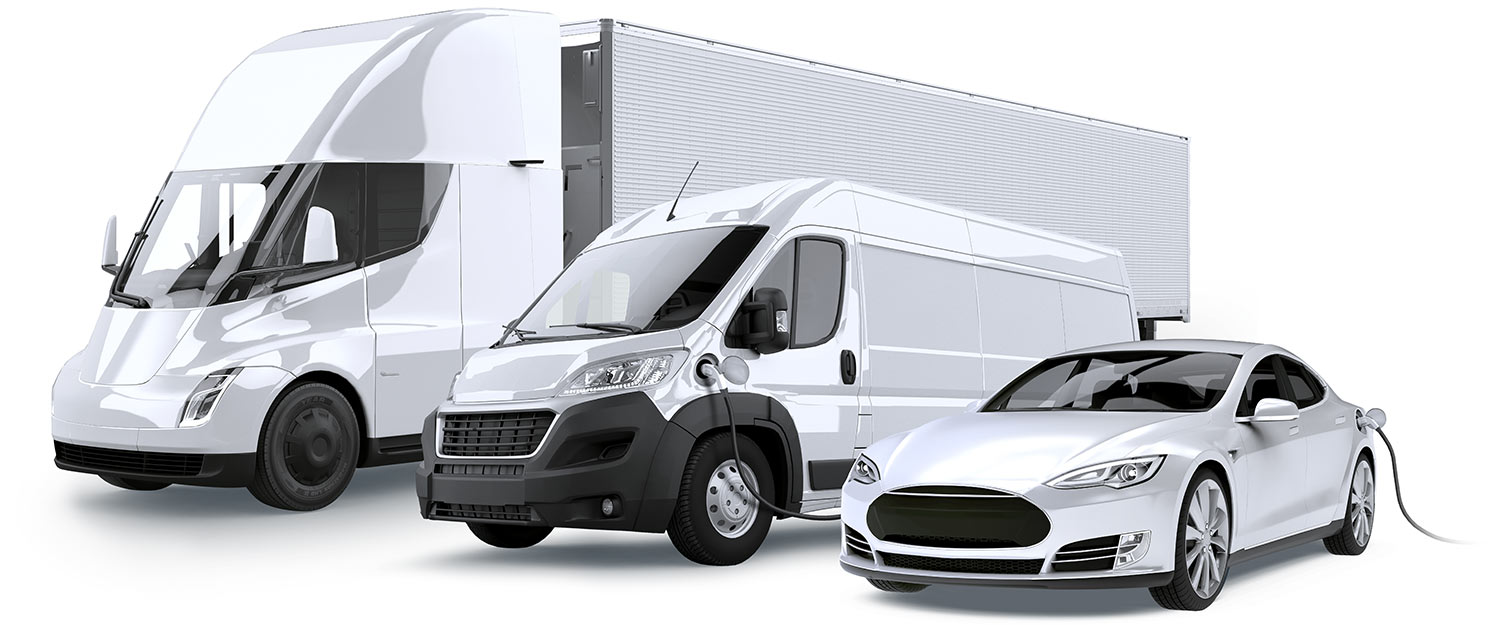
FAQ
An EV routing system is what?
Devices equipped with Advanced Driver Assistance Systems (ADAS) have the routing API feature known as “EV Routing.” It also makes use of charging infrastructure apps, which are essentially databases with information on membership, prices, and car manufacturers as well as the availability of charging stations in real time.
What things should EV fleet managers to be aware of?
It’s important to make sure your business will benefit from the upgrade to electric vehicles because it might be a costly investment.
Managers must evaluate the typical and cumulative driving distances that a fleet vehicle travels on a daily, monthly, or annual basis before making the switch to an electric vehicle fleet.
You must first determine the maximum drive distance for your fleet in order to determine how much mileage you can expect from your new EVs.
Fleet managers must have a complete knowledge of driving behavior, which has a greater impact on EVs than on conventional vehicles.
You must be aware of typical idle tendencies that happen throughout a typical travel in order to ensure that your EVs are always recharged when you need them.
How helpful is EV data for fleet management?
EV data increases productivity and operational effectiveness. EV fleet management software offers data elements such as fuel trackers, driver monitoring, and real-time location. This makes it possible for fleet management companies to monitor engine idling time, which improves driving efficiency. Additionally, it has a huge effect on the bottom line.
What effects will electrification have on the transportation and trucking sectors?
New approaches to route planning, charging, maintenance, driver upskilling, and proactive compliance reporting on carbon targets will be needed for EV fleet management. The difficult aspect is that.
Electric fleet management is perceived by many as an impediment from without. Governments are providing strict directions for commercial fleet owners to “make trucks sold in the state be emissions-free by 2035” or risk harsh penalties, from California to Hong Kong.
But does fleet electrification go beyond simply meeting regulatory requirements? No doubt.
Advantages of managing an electric vehicle fleet
Companies that handle fleets will undoubtedly need to brace themselves for significant operational changes. But there will be a plethora of advantages when they carry out their roadmaps.
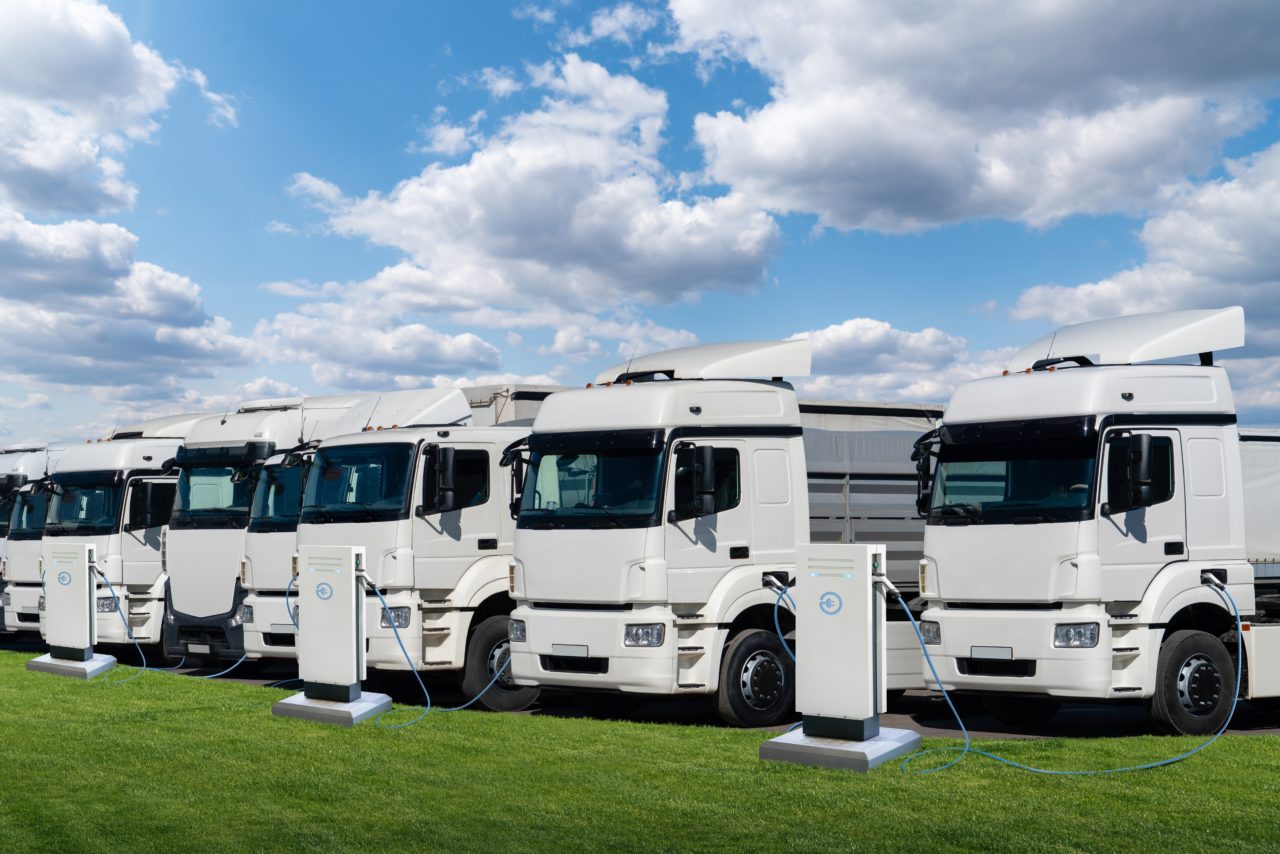
Reductions in fuel costs
With a typical share of expenditures of 33%, fuel prices continue to rank among the highest costs for managers. Those can be reduced by implementing efficient fuel management techniques. However, moving to an electric vehicle fleet (and later to alternate fuels) will still result in greater long-term savings.
In the top 25 US metro areas, electric power is still 43% less expensive than gasoline for medium-duty automobiles. The savings are much more apparent in nations with higher fuel expenses. Finally, switching to EVs might shield your company from the volatility of the world markets.
Lower costs for maintenance
For the first several years, it is simple to argue that electric fleets will be less expensive to maintain than conventional ones. However, the design of electric cars encourages a longer operational life. EVs use less fluid to run, are easier on braking, and overall have fewer moving parts that need frequent maintenance.
NYC officials have employed analytics to compare how different assets in their fleet operate. They found that the average electric car maintenance expenditure was $386 per year compared $1,600 spent on a gas-powered car.
EV maintenance expenses can also be further decreased by incorporating predictive maintenance based on car-collected data. By establishing digital twins of EV batteries, fleet managers may collect real-time vehicle performance data under varied situations and use it for route planning. Lastly, as EV battery technology further evolves, maintenance costs connected with battery servicing will go down too.
Better brand perception and more business
It’s not just the transportation industry squeezed by regulatory demands. Nearly every other industry today seeks to reduce its carbon footprint and offer reliable CRS data to regulators, investors, and consumers.
Completing fleet electrification early can make your operations more attractive to business partners. At the same time, it can score you extra points with consumers. Many increasingly seek “greener” solutions. That’s not news. What’s interesting is that many people are willing to adjust their habits if this leads to more sustainable solutions.
For example, 30% of buyers who won’t tolerate a longer delivery time when given economic incentives (free shipping) are willing to do so when there’s an environmental incentive (carbon-neutral shipping) (carbon-neutral shipping). That’s a good incentive for adopting electric last-mile solutions. Still, you’ll need to make difficult choices around investing in the necessary gear and software to run your operations.
EV fleet management systems: Main components
When it comes to fleet electrification, most conversations oriented around hardware – the finest e-vehicle models, electric car charging infrastructure, etc.
Sure, you’ll need to learn about several types of chargers (fast or ultra-rapid DC, which is best?). But this move also assumes a more profound reinvention of how you manage the rest of your operations:
To Sum Up
It can tough to remain on top of all that has to done while monitoring an electric car fleet, which is why specialized software required to maintain tabs on things like charging schedules, energy efficiency in routes, energy utilized, etc. Because of this, EV fleet firms can function efficiently and financially.
Play Geometry Dash in your free time to relax and have some fun with friends, try out now!


